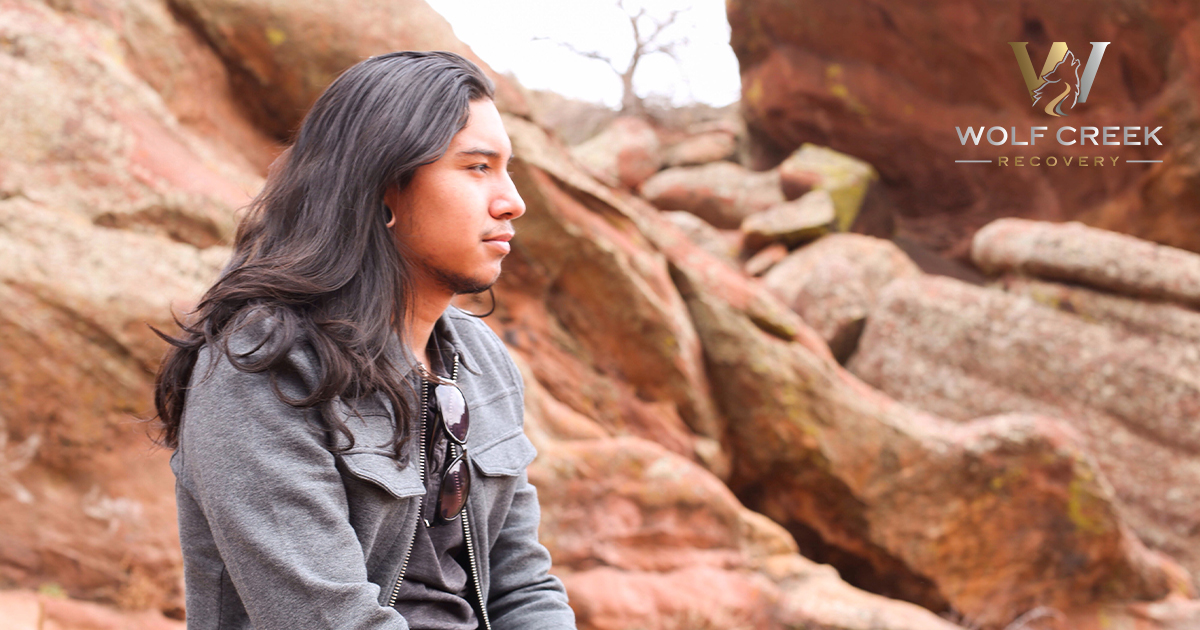Signs of Cocaine Addiction
In 2022, an estimated 991 people in Phoenix lost their lives to drug overdose. While opioids account for the majority of these deaths, cocaine is still responsible for some of them. Cocaine becomes especially dangerous when combined with other substances like alcohol, as the two create an entirely new psychoactive substance called cocaethylene. This is just as potent as cocaine but lasts longer and can lead to sudden death through lethal heart attack, stroke, or hyperthermia.
The staff at Wolf Creek Recovery is no stranger to substance use. Many of us are working on our recoveries and understand what it feels like to go through the process. We realize that it can be difficult to end cocaine use because people rely on the effects to feel good (or even to feel “normal”). But there are many natural ways to increase your mood and energy! Let’s learn more about the signs of cocaine addiction and how to tell if someone is participating in cocaine use.
Timeline of Cocaine Addiction Symptoms
Cocaine is a stimulant drug that produces euphoric effects when taken. However, its effects are short-lived, usually lasting around 15-30 minutes depending on how the drug was ingested. Smoking or injecting cocaine causes almost instantaneous effects, while snorting cocaine or rubbing it on the gums usually kicks in around 5-10 minutes.
Early Signs of a Cocaine Use Disorder
Since cocaine has short-term effects, some people can use the drug and return home or work seemingly normal. Pure cocaine doesn’t always have a noticeable odor, either, and people can snort the powder with just a fingernail or key. Nevertheless, if you notice that something is “off” with someone, listen to your gut.
Some early signs of cocaine use disorder include:
- Behavioral signs. Addiction causes changes in how a person thinks, acts, and feels. You may notice that your loved one is lying, stealing, or experiencing bursts of energy and hyperactivity. There may be a change in friends or a lack of interest in previously enjoyed activities.
- Physical signs. Someone who uses cocaine regularly may not have a good appetite, leading to weight loss and malnutrition. They may also suffer from bloody noses, and you may notice excessive sweating and dilated pupils when they’re on the drug.
- Mental signs. People who use cocaine often experience significant mood swings. They might show symptoms of depression, anxiety, or paranoia. They may also experience hallucinations and psychosis.
Late Signs of Cocaine Use Disorders
The regular use of cocaine can lead to longer-term symptoms that affect a person’s overall health and well-being. Cocaine takes a toll on many organ systems, possibly leading to:
- High blood pressure
- Poor lung function
- Respiratory damage
- Cardiovascular damage
- Gastrointestinal damage
- Heart attack or stroke
Cocaine Use Symptoms
People who use cocaine recreationally often do so because they like how it makes them feel. Unlike other substances that can cause lethargy, cocaine provides an enormous boost. Cocaine makes people feel wide awake, confident, positive and euphoric. This can be especially appealing to someone who is normally very shy around others. However, the effects of cocaine are short, so for the person to prolong the effects, they have to take the drug again. This can lead to a cycle of tolerance, dependence, and addiction. Eventually, they may even feel like they can’t live without cocaine.
Physical Signs of Cocaine Use Disorder
Cocaine use disorders can range from mild to severe. With regular use, you are likely to notice physical changes such as:
- Nosebleeds
- Runny nose
- Dilated pupils
- Sudden weight loss
- Burn marks on hands and lips
- Needle marks
- Poor hygiene
- Increased body temperature
- Tremors
- Headaches
- Trouble swallowing
- Malnourishment
Behavioral Signs of Cocaine Cocaine Use Disorder
Any time a person experiences a substance use disorder, their behaviors change to some degree. Even in mild cases, you will usually notice that the person has less interest in the hobbies they once enjoyed and a change in eating and sleeping habits. Below are the behavioral signs that may indicate a cocaine use disorder:
- Frequent disappearances
- Emotional instability
- Intense mood swings
- Depression
- Anxiousness or nervousness
- Paranoia
- Cognitive changes
- Trouble with impulse control
- Aggression or violence
Social Signs of Cocaine Use Disorder
Cocaine doesn’t just affect the mind and body of the individual who is using the drug. It also affects those around them. This is why you may notice social changes as well:
- Trouble in relationships
- Change in friend groups
- Lack of interest in spending time with family
- Only attending events where substances are used
- Family conflict
- Physical/mental abuse or neglect
Treatment for Cocaine Addiction in Prescott, AZ
Deciding to start substance use treatment is the first step to recovery. Many people who use cocaine also use other substances, so it’s best to choose an integrated recovery program. This type of care is comprehensive and addresses all substance use and mental health disorders under one roof. Since there are no FDA-approved medications for treating cocaine use disorder, addiction treatment specialists rely on behavioral interventions, relapse prevention education, aftercare, and support groups. People generally respond well to these treatments and can remove cocaine from their lives with hard work.
Here at Wolf Creek Recovery, we are committed to helping individuals build a life that they love. We do this by introducing our clients to several healthy coping strategies, such as hiking, playing sports, and soaking up the warm Arizona sun. Many of our team members are in recovery, allowing them to offer a unique form of empathy and understanding. Give us a call at 833-732-8202 to learn more about starting your recovery.
FAQ About The Signs of Cocaine Addiction
How common is cocaine addiction?
Cocaine is a problem in Arizona and the greater U.S. In 2021, it was estimated that 4.8 million people reported using cocaine in the past 12 months by the National Institute on Drug Abuse. Among people 12 or older, about 1.4 million people had a cocaine use disorder in the same year.
How can I tell that someone is using cocaine?
When someone uses cocaine, they feel upbeat, positive, full of energy, and euphoric. You may notice that they are talkative and excited, but only for a half hour or so. Over time, you may find that the person is losing weight quickly, malnourished, and experiencing mood swings.
Are there long-term effects of using cocaine?
While cocaine has fast-acting effects that disappear quickly, this does not mean that it doesn’t take a toll on the body. Over time, cocaine places extreme stress on vital organs in the body, affecting the respiratory, cardiovascular, and gastrointestinal systems.
Can I help someone with a cocaine use disorder?
Yes, you can help someone who is experiencing a cocaine use disorder, though it’s important to know that you can’t control them. Their recovery is up to them. What you can do is encourage treatment and set healthy boundaries.
How is cocaine use disorder treated?
Cocaine use disorder is treated with counseling, therapy, aftercare, and community-based support. People who receive support from loved ones, develop healthy coping skills, and engage in ongoing therapy generally have the best outcomes.














